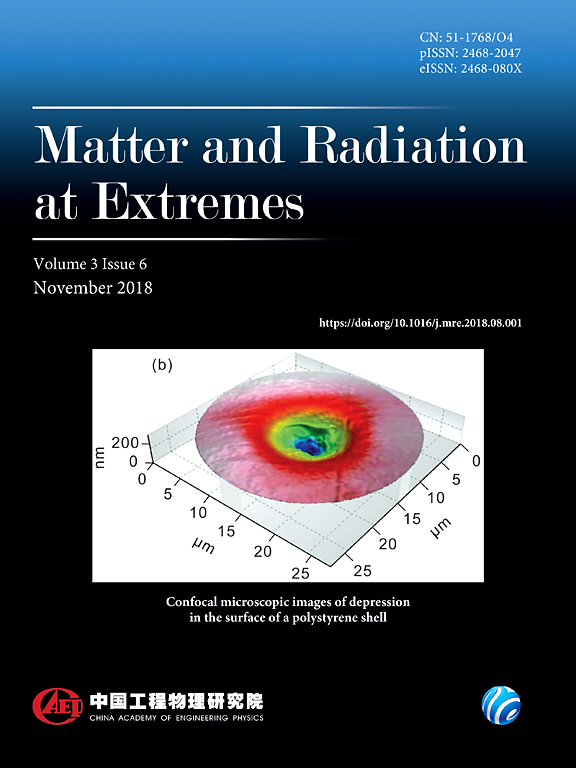Unveiling a novel metal-to-metal transition in LuH2: Critically challenging superconductivity claims in lutetium hydrides
IF 4.7
1区 物理与天体物理
Q1 PHYSICS, MULTIDISCIPLINARY
引用次数: 0
Abstract
Following the recent report by Dasenbrock-Gammon et al. [Nature 615, 244–250 (2023)] of near-ambient superconductivity in nitrogen-doped lutetium trihydride (LuH3−δNε), significant debate has emerged surrounding the composition and interpretation of the observed sharp resistance drop. Here, we meticulously revisit these claims through comprehensive characterization and investigations. We definitively identify the reported material as lutetium dihydride (LuH2), resolving the ambiguity surrounding its composition. Under similar conditions (270–295 K and 1–2 GPa), we replicate the reported sharp decrease in electrical resistance with a 30% success rate, aligning with the observations by Dasenbrock-Gammon et al. However, our extensive investigations reveal this phenomenon to be a novel pressure-induced metal-to-metal transition intrinsic to LuH2, distinct from superconductivity. Intriguingly, nitrogen doping exerts minimal impact on this transition. Our work not only elucidates the fundamental properties of LuH2 and LuH3, but also critically challenges the notion of superconductivity in these lutetium hydride systems. These findings pave the way for future research on lutetium hydride systems, while emphasizing the crucial importance of rigorous verification in claims of ambient-temperature superconductivity.揭示 LuH2 中的新型金属-金属转变:对镥氢化物中的超导说法提出严峻挑战
Dasenbrock-Gammon 等人最近报告了掺氮的三氢化镥(LuH3-δNε)的近环境超导性[Nature 615, 244-250 (2023)]。在这里,我们通过全面的表征和研究,对这些说法进行了细致的重新审视。我们确定了报告中的材料为二氢化镥(LuH2),从而解决了围绕其成分的模糊性问题。在类似条件下(270-295 K 和 1-2 GPa),我们以 30% 的成功率复制了所报道的电阻急剧下降的现象,这与 Dasenbrock-Gammon 等人的观察结果一致。然而,我们的广泛研究表明,这种现象是 LuH2 固有的一种新型压力诱导金属-金属转变,与超导现象截然不同。有趣的是,氮掺杂对这种转变的影响微乎其微。我们的工作不仅阐明了 LuH2 和 LuH3 的基本性质,而且对这些镥氢化物系统的超导性概念提出了严峻的挑战。这些发现为今后有关镥氢化物系统的研究铺平了道路,同时强调了严格验证环境温度超导性说法的极端重要性。
本文章由计算机程序翻译,如有差异,请以英文原文为准。
求助全文
约1分钟内获得全文
求助全文
来源期刊

Matter and Radiation at Extremes
Physics and Astronomy-Atomic and Molecular Physics, and Optics
CiteScore
8.60
自引率
9.80%
发文量
160
审稿时长
15 weeks
期刊介绍:
Matter and Radiation at Extremes (MRE), is committed to the publication of original and impactful research and review papers that address extreme states of matter and radiation, and the associated science and technology that are employed to produce and diagnose these conditions in the laboratory. Drivers, targets and diagnostics are included along with related numerical simulation and computational methods. It aims to provide a peer-reviewed platform for the international physics community and promote worldwide dissemination of the latest and impactful research in related fields.
 求助内容:
求助内容: 应助结果提醒方式:
应助结果提醒方式:


